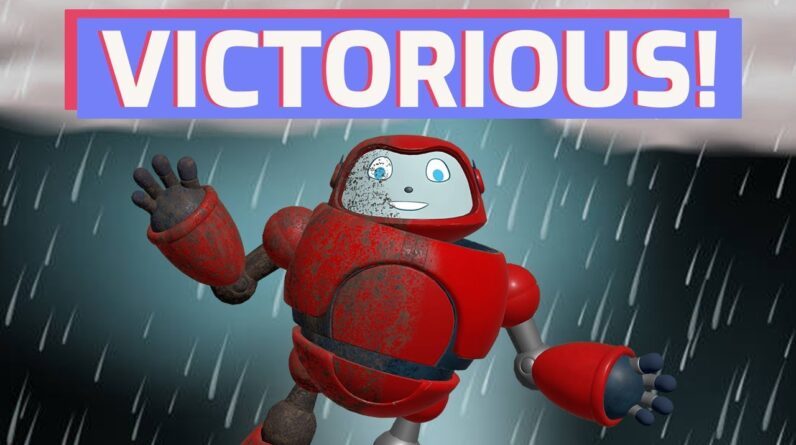In “The Power of Forgiveness: Teaching Kids Biblical Lessons,” you will discover how teaching children about forgiveness based on Biblical principles can have a profound impact on their lives. This article explores the transformative power of forgiveness, emphasizing its importance in building strong and resilient character in children. Through engaging stories, practical tips, and insightful guidance, this article equips parents and educators with valuable tools to instill the value of forgiveness in the hearts of young ones, inspiring them to embrace compassion, empathy, and grace as they navigate their journey in life.
The Importance of Forgiveness
Forgiveness is a powerful virtue that holds immense significance in our lives and relationships. It allows us to let go of resentment, anger, and hurt, and promotes healing and reconciliation. In the Bible, forgiveness is a recurring theme that is emphasized as a core value in our relationship with God and others. Teaching kids about forgiveness from a young age is crucial as it instills in them the ability to forgive and seek forgiveness, promoting emotional well-being and healthy relationships.
Understanding Forgiveness in the Bible
The Bible provides us with profound insights into the nature and significance of forgiveness. It teaches us that forgiveness is not only a transactional act but also a virtue that cultivates love, compassion, and empathy. When we forgive others, we mirror the forgiveness that God extends to us, and this understanding is essential in teaching kids about forgiveness. By exploring biblical stories that exemplify forgiveness, we can help children grasp the true meaning and value of forgiveness in their own lives.

This image is property of images.pexels.com.
Why Teaching Kids about Forgiveness is Crucial
As adults, we know that conflict and misunderstandings are a natural part of life. By teaching kids about forgiveness, we equip them with the necessary tools to navigate these challenges in a healthy and constructive manner. Moreover, forgiveness allows children to develop emotional resilience, empathy, and the ability to build positive relationships. Teaching kids about forgiveness from a young age sets a foundation for them to grow into compassionate and forgiving individuals who contribute to a peaceful society.
Forgiveness as a Virtue
Defining Forgiveness as a Virtue
Forgiveness as a virtue is about choosing to let go of negative emotions, such as anger and resentment, and replacing them with empathy, understanding, and love. It involves a conscious decision to release the desire for revenge or punishment and instead focus on reconciliation and healing. By teaching kids that forgiveness is a virtue, we emphasize the importance of prioritizing compassion and understanding in their interactions with others.
Teaching Kids the Value of Forgiveness
To teach kids the value of forgiveness, it is essential to help them recognize the positive impact forgiveness has on their own emotional well-being and relationships. By discussing examples of forgiveness in age-appropriate terms, we can show children how forgiveness brings peace, healing, and personal growth. Sharing stories and anecdotes that highlight the transformative power of forgiveness can be particularly impactful in helping children understand its value.
How Forgiveness Promotes Emotional Well-being
Forgiveness is not only about pardoning others but also about freeing ourselves from the weight of negativity and resentment. When children learn to forgive, they experience emotional liberation and release themselves from the burden of holding grudges. Forgiveness promotes emotional well-being by reducing stress, improving self-esteem, and fostering positive mental health. By teaching kids the value of forgiveness, we empower them to prioritize their emotional well-being and build resilient, compassionate hearts.

This image is property of images.pexels.com.
Biblical Stories of Forgiveness
The Bible is rich with stories that exemplify the power and significance of forgiveness. By exploring these stories, we can help kids understand forgiveness from a biblical perspective and apply these lessons to their own lives.
The Story of Joseph
The story of Joseph is a powerful example of forgiveness. Despite being betrayed by his brothers and sold into slavery, Joseph chooses to forgive them when they eventually seek his help during a time of famine. Through forgiveness, Joseph not only reconciles with his brothers but also preserves the unity of his family. This story teaches children that forgiveness is a path to healing and restoration, even in the face of immense pain or betrayal.
The Prodigal Son
In the parable of the prodigal son, Jesus teaches us about the unconditional love of God and the importance of forgiveness. The story follows a young man who squanders his inheritance, only to return home seeking forgiveness from his father. Instead of rejecting his son, the father forgives him wholeheartedly and celebrates his return. This story teaches children about the limitless love and forgiveness that God extends to us, encouraging them to practice forgiveness in their own lives.
David and Bathsheba
The story of David and Bathsheba highlights the depth of God’s forgiveness even in the face of grave mistakes. Despite David’s betrayal and wrongdoing, God forgives him when he repents, showcasing the unending mercy of God. This story teaches children that forgiveness is not only reserved for minor mistakes but also extends to significant transgressions. It encourages them to seek God’s forgiveness and extend the same forgiveness to others in their own lives.
Teaching Kids about God’s Forgiveness
Understanding God’s forgiveness is essential in teaching kids about forgiveness. By sharing the concept of God’s forgiveness, we help children grasp the depth of God’s love and mercy, fostering a sense of awe and gratitude. Children can learn that no matter what mistakes they make, God always offers them forgiveness and a chance to start anew. Teaching kids about God’s forgiveness equips them with the belief that forgiveness is not only possible but also transformative.
Illustrating Forgiveness through Jesus’ Teachings
Jesus’ teachings exemplify forgiveness, emphasizing that it is central to our faith and relationship with God. By sharing parables and teachings, such as the Lord’s Prayer, the Sermon on the Mount, and the teaching on the unforgiving servant, children can understand the significance of forgiveness in their daily lives. These teachings provide a foundation for kids to model forgiveness in their interactions with others and seek God’s forgiveness when they make mistakes.

This image is property of images.pexels.com.
Practical Strategies for Teaching Forgiveness
While discussing forgiveness conceptually is important, it is equally crucial to provide practical strategies that children can apply in their lives. By employing these strategies, we enable children to actively engage with forgiveness and cultivate a forgiving mindset.
Lead by Example
One of the most effective ways to teach children about forgiveness is by demonstrating forgiveness in our own lives. When children witness adults forgiving others, apologizing sincerely, and letting go of grudges, they learn the importance of forgiveness through observation and experience.
Encouraging Empathy and Compassion
Teaching children empathy and compassion allows them to understand the perspectives and emotions of others. When children can empathize with others, they are more likely to forgive, as they grasp the pain and shortcomings that may have led to certain actions or conflicts.
Teaching Conflict Resolution Skills
Conflict resolution skills are essential in navigating disagreements and misunderstandings. By teaching children effective communication, active listening, and problem-solving techniques, we equip them with the tools needed to handle conflicts in a peaceful and forgiving manner.
Using Age-appropriate Language
When discussing forgiveness, using age-appropriate language is important in ensuring that children understand the concepts and lessons being taught. Breaking down complex ideas and using relatable examples allows children to connect with the concept of forgiveness and apply it to their own lives.
Incorporating Forgiveness in Daily Routines
By incorporating forgiveness into daily routines, such as bedtime rituals or mealtime discussions, we normalize forgiveness and make it a regular part of children’s lives. Encouraging them to reflect on their day, apologize when necessary, and express gratitude helps cultivate forgiveness as a natural response in their interactions.
Fostering Empathy and Understanding
Teaching children to cultivate empathy and understanding is crucial in fostering forgiveness. By encouraging them to put themselves in others’ shoes, we promote a deeper understanding of the emotions and motivations behind others’ actions. This allows children to approach conflicts with compassion and forgiveness, rather than anger and resentment.
Teaching Kids to Put Themselves in Others’ Shoes
Empathy begins with the ability to understand and identify with the experiences and emotions of others. By teaching kids to imagine themselves in someone else’s situation, we encourage them to consider alternative perspectives and respond to conflicts with empathy and forgiveness.
Encouraging Active Listening
Active listening is an essential skill that helps children truly understand others’ feelings and viewpoints. By teaching kids to listen attentively without interrupting or judging, we enable them to foster empathy and respond to conflicts with greater understanding and forgiveness.
Promoting Dialogue and Communication
Open and honest communication plays a fundamental role in resolving conflicts and building understanding. By teaching kids to express their thoughts and emotions calmly and respectfully, we promote a safe space for forgiveness and reconciliation.
Addressing Challenges and Resentment
In teaching forgiveness, it is important to address the challenges and emotions that children may experience, such as frustration and anger. By providing guidance and support, we help children navigate these emotions, cultivate forgiveness, and move towards reconciliation.
Helping Children Navigate Conflicts
Conflicts are a natural part of life, and helping children navigate them is essential in promoting forgiveness. By teaching conflict resolution strategies, such as compromise, active listening, and seeking common ground, children can approach conflicts with a mindset of forgiveness and reconciliation.
Dealing with Frustration and Anger
When children experience frustration or anger, it can be challenging for them to forgive others. By teaching them healthy coping mechanisms, such as deep breathing exercises or engaging in calming activities, we equip them to manage their emotions and respond with forgiveness rather than hostility.
Cultivating a Forgiving Mindset
Cultivating a forgiving mindset involves consciously choosing forgiveness as a response to conflicts and hurt. By encouraging children to focus on understanding, empathy, and the belief in second chances, we help them develop a mindset that prioritizes forgiveness and reconciliation.
Teaching the Process of Forgiveness
Forgiveness is a process that involves multiple stages, from acknowledging the hurt to rebuilding trust. By explaining the steps of forgiveness, we provide children with a roadmap for navigating conflicts and healing relationships.
Explaining the Steps of Forgiveness
The steps of forgiveness typically include acknowledging the hurt, expressing emotions, letting go of resentment, and seeking reconciliation. By explaining these steps to children, we empower them to actively engage in the process of forgiveness and work towards healing and growth.
Apologizing Sincerely
Apologizing sincerely is a fundamental component of forgiveness. By teaching children how to apologize sincerely, we help them take responsibility for their actions, express remorse, and open the door for forgiveness and reconciliation.
Accepting Responsibility
Accepting responsibility is a vital aspect of forgiveness. By teaching children to take ownership of their actions and acknowledge the consequences they have on others, we promote self-reflection and personal growth, facilitating the forgiveness process.
Letting Go of Resentment
Letting go of resentment is often the most challenging step in the forgiveness process. By teaching children techniques such as forgiveness exercises, journaling, or visualizations, we enable them to release negative emotions and make room for forgiveness and healing.
Rebuilding Trust
Rebuilding trust is a natural progression in the forgiveness process. By teaching children the importance of consistent actions, showing remorse, and demonstrating their willingness to change, we encourage the rebuilding of trust in relationships.
Cultivating Forgiveness in Everyday Life
Forgiveness is not just a moral lesson reserved for specific situations; it is a principle that should be integrated into every aspect of children’s lives.
Teaching Forgiveness in School Settings
Schools provide an ideal platform for teaching forgiveness. By incorporating forgiveness into character education programs, conflict resolution training, and peer mediation programs, schools can create a culture that promotes forgiveness, empathy, and personal growth.
Forgiveness in Friendships and Relationships
Teaching children about forgiveness in friendships and relationships is vital for fostering healthy social dynamics. By emphasizing the importance of forgiveness in resolving conflicts, maintaining trust, and nurturing friendships, we equip children with the skills to build lifelong connections grounded in forgiveness and understanding.
Forgiveness within the Family
The family unit is where children first learn about forgiveness. By modeling forgiveness and creating an environment that encourages open communication and forgiveness, families can cultivate a loving and forgiving atmosphere that supports children’s emotional well-being and personal growth.
How Forgiveness Contributes to a Peaceful Society
Teaching kids about forgiveness from an early age contributes to the creation of a more peaceful society. When children understand the power of forgiveness, they are less likely to resort to aggression, revenge, or violence. Instead, they prioritize peaceful solutions, empathy, and reconciliation, which collectively contribute to a harmonious and compassionate society.
Long-Term Benefits of Teaching Forgiveness
Teaching forgiveness has numerous long-term benefits that extend beyond childhood. By instilling the value of forgiveness, we empower children to become resilient and emotionally intelligent individuals who contribute positively to their communities.
Building Resilient and Emotionally Intelligent Individuals
The ability to forgive fosters emotional resilience and intelligence. By teaching kids forgiveness, we equip them with the tools to navigate conflicts, bounce back from setbacks, and maintain healthy relationships. This resilience allows them to face challenges with a positive mindset and grow emotionally.
Reducing Aggression and Promoting Harmony
When children understand and practice forgiveness, they learn to respond to conflicts with understanding and compassion, instead of aggression or retaliation. This leads to a reduction in aggressive behavior, promoting harmony in their relationships and communities.
Strengthening Bonds and Fostering Healthy Relationships
Forgiveness strengthens bonds and fosters healthy relationships. By forgiving others, children establish trust, empathy, and mutual respect, which form the foundation for strong and lasting connections. The ability to forgive also promotes forgiveness in return, enabling relationships to flourish.
Developing a Sense of Personal Growth and Spiritual Connection
Forgiveness promotes personal growth and a deeper sense of spirituality. When children learn to forgive, they embark on a journey of self-reflection, growth, and healing. This process allows them to connect with their own emotions, the emotions of others, and their faith, leading to a stronger spiritual connection and a greater sense of purpose.
In conclusion, teaching kids about forgiveness is a crucial aspect of their personal and spiritual development. By understanding forgiveness as a virtue, exploring biblical stories of forgiveness, and implementing practical strategies, children can cultivate a forgiving mindset and experience the transformative power of forgiveness in their lives. With the ability to forgive, children grow into resilient, empathetic individuals, contributing to a society built on compassion, understanding, and harmony.







